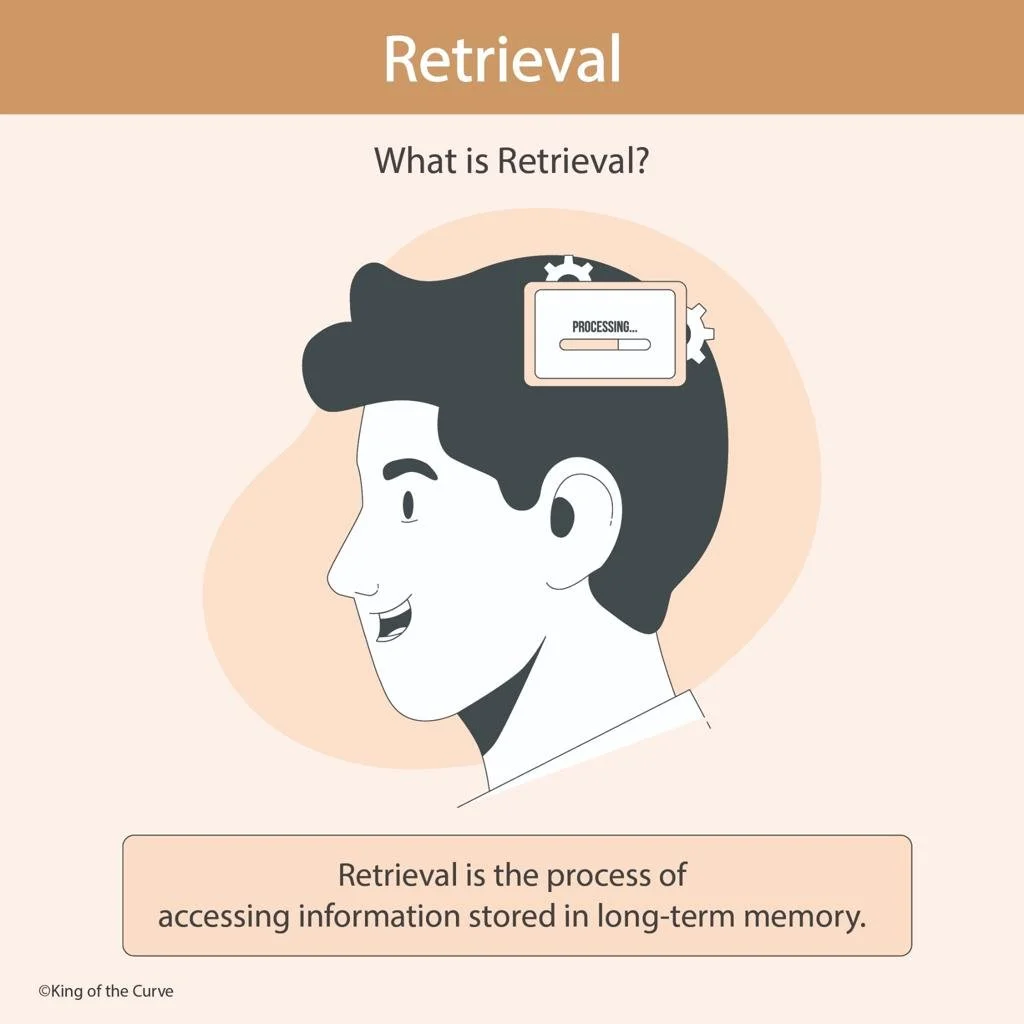🧠 Retrieval: Accessing Long-Term Memory
Retrieval is the process of accessing information stored in long-term memory. It plays a vital role in learning, allowing us to recall facts, concepts, and experiences when we need them most—especially during exams like the MCAT, NCLEX, or USMLE. Without retrieval, even well-studied material can become inaccessible. Understanding how it works can dramatically boost your study effectiveness and retention.
❓ What is Retrieval?
Retrieval is the process of accessing stored information from long-term memory and bringing it into conscious awareness. It allows us to recall facts, skills, and experiences—whether you're remembering a formula for the MCAT or a patient case from USMLE prep.
⭐ Why Is Retrieval Important?
Retrieval is essential in both learning and application. It's not just about storing information but being able to retrieve and use it when needed. Strong retrieval skills are critical for exams like MCAT, NCLEX, and USMLE, where performance hinges on recall speed and accuracy.
🧾 Types of Retrieval
| 🗂️ Type | 🔍 Description |
|---|---|
| Recall | Retrieving information without external cues. 📝 Example: Writing an essay from memory. |
| Recognition | Identifying correct information from options. ✔️ Example: Selecting the right answer on a multiple-choice test. |
| Relearning | Reviewing previously learned material more efficiently. 🔁 Example: Studying for a retake becomes faster. |
🔑 Factors That Affect Retrieval
| 📌 Factor | 🧠 Impact |
|---|---|
| Context | Better recall when the environment matches the one in which learning occurred. |
| State-Dependent Memory | Recall is improved when in the same emotional or physical state as when the memory was formed. |
| Retrieval Frequency | Practicing retrieval regularly strengthens memory traces and recall speed. |
📚 KOTC Tip: Practice Retrieval Daily
Using retrieval practice boosts long-term retention and exam performance. Tools like flashcards, practice quizzes, and mock exams on the King of the Curve app make this easier. Try the spaced repetition and test modes for the MCAT, NCLEX, USMLE, or DAT!
✅ Conclusion
Retrieval is not just remembering—it's active learning. Mastering this process helps you retain knowledge longer and recall it faster during exams. Make retrieval practice part of your study routine, and success will follow.
Frequently Asked Questions (FAQs)
-
Aim for 4-6 focused hours, ensuring you incorporate breaks to avoid burnout.
-
Practice mindfulness techniques, take practice exams under realistic conditions, and maintain a balanced lifestyle.
-
Set short-term goals, seek support from mentors, and reward yourself for small achievements.
-
Regular exercise improves focus, reduces stress, and enhances overall mental clarity.
-
KOTC offers personalized learning tools, gamification features, and adaptive question banks to help students stay on track without burnout.


